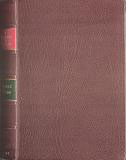MAJOR-GENERAL SIR GEORGE LEGRAND JACOB KCSI, CB
Born 24th April 1805 - Died 27th January 1881
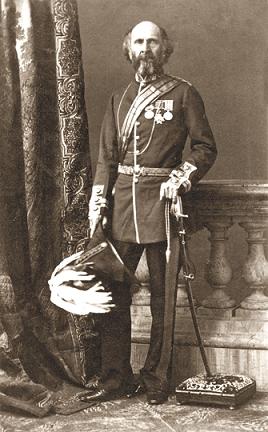
He was the fifth son of John Jacob, born on 24th April 1805 at Roath Court, near Cardiff. In 1815 his family moved to Guernsey. He was eduacted at Elizabeth College, Guernsey, and by private tutors in France and England, and when he was about 15 he was sent to London to learn Oriental languages under Dr John Borthwick Gilchrist. He obtained an Indian infantry cadetship in 1820 and was posted to the 2nd or Grenadier Regiment Bombay Native Infantry (later Prince of Wales's Own) as ensign on 9th June 1821. He was promoted Lieutenant on 10th December 1823, Captain on 6th June 1836, Major on 1st May 1848, Lieutenant-Colonel in the 31st Bombay Native Infantry on 15th November 1853, Brevet-Colonel on 6th December 1856, Brigadier-General on 21st July 1858, and Major-General on retirement on 31st December 1861.
He
passed for interpreter in Hindustani so quickly after his arrival in India,
that he was complimented in Presidency General Orders. He afterwards passed
in Persian and Marathi. He also studied Sanskrit. He took his furlough home
in 1831 and was appointed Orderly officer at Addiscombe College in January
1833. Whilst there he undertook, at the request of the Oriental Translation
Fund, the translation of the Ajaib-al-tabakat (Wonder of the Universe), a
manuscript purchased by Alexander Burnes in the bazaar at Bukhara. He considered
his translation not worth printing and the manuscript of it is now in the
Library of the Asiatic Society, London.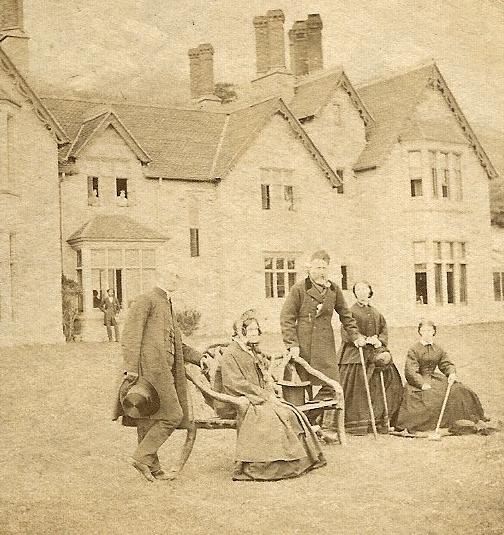
On 18th June 1835 he married Emily, the daughter of Colonel Utterton of Heath Lodge, Croydon, and soon afterwards sailed for India. His wife died at sea, and he landed at Bombay himself in poor health. He recovered under the care of a brother, William Jacob, then an officer in the Bombay Artillery, and in 1836 was appointed second political assistant in Kathiawar, where he was in political charge from 1839 to 1843. He wrote a number of reports that are now in the British Library India Office. Early in 1845 he served as an extra Aide-de-Camp to Major-General Delamotte during the disturbances in the southern Maratha country, and was wounded in the head and arm by a falling rock when he was in command of the storming party in the assault on the hill fort of Munsuntosh.
In April 1845 he was appointed political agent in Savantvadi. The little state was bankrupt, with its gaols overflowing, but his judicious measures during a period of six years restored order, retrieved its finances, and reformed abuses. On 8th Januuary 1851 he was made political agent in Cutch, and was sent to Sind as a special commissioner to investigate the case of the unfortunate Mir Ali Murad, Khan of Khairpur. He also sat on an inquiry into departmental abuses at Bombay. An account of his travels in Cutch appeared in the 1862 Proceedings of the Bombay Geographical Society, later merged in the Asiatic Society of Bombay. He was in poor health and he obtained leave. He visited China, Java, Sarawak and Australia, keeping his eyes and ears ever on the alert, always reading , writing, or inquiring - mostly smoking - winning men by his geniality and women by his courteous bearing (Overland Mail, 6th May 1881). Whilst in Sarwak he got to know Sir James Brooke, Raja Brooke, whose biography his niece Gertrude Jacob was to write, and to which he contributed a foreword. On his return he was shipwrecked on a coral reef in Torres Strait, and saved from cannibals by a Dutch vessel. He left Cutch for Bombay in December 1856, at first intending to retire; but he served under Outram in the Persion expedition, as did his cousin Brigadier General John Jacob. He was in command of the native light battalion in the division under Henry Havelock. He returned with the expeditionary force to Bombay in May 1857.
Acting
unde orders of Lord Elphinstone, the governor of Bombay, he arrived at Kolhapur
on 14th August, a fortnight after the 27th Bombay Native Infantry had mutinied
there. Four days later he, with a mere handful of troops, quietly disarmed
the regiment, and punished the ringleaders. On 4th December following, when
the city closed its gates against Jacob's small force, which was camped in
its lines outside, he promptly blew open one of the gates, put the rebels
to flight, tried by drumhead court martial and executed on the spot twenty-one
who were convicetd of mutiny - eight were blown from the guns, two were hung,
and eleven were shot - and held the city until the danger was past. His vigour
presumably prevented the uprising from spreading over the whole southern Maratha
country and into the Nizam's dominions. He was especially thanked in presidency
orders on 8th January 1858. His powers, at first limited to Kolhapur, Savantvadi
and Ratnagiri, were in May 1858 extended to the whole of the southern Maratha
country, of which he was appointed special commissioner. He was also given
the rank of Brigadier General. After dealing successfully with various local
outbreaks, he was sent to Goa to confer with the Portuguese authorities respecting
the Savant rebels on the frontier. This successfully accomplished, he resigned
his command. He left India in 1859. James Outram appears to have wanted him
to succeeed him as a member of the council at Calcutta, but he retired with
the rank of Major-General from 31st December 1861. He was made CB in March
1859 and KCSI in June 1869.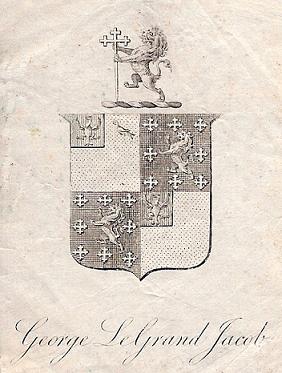
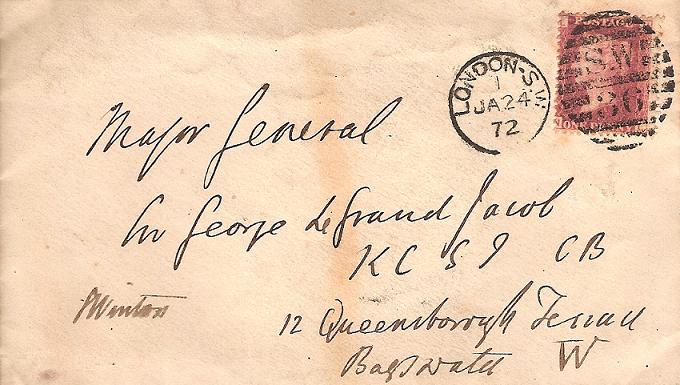 There
was some dissent on his part on the part various officers played in the mutiny.
In a letter he states many would have received a court martial rather than
the honours they did in the event receive. It is understandable that this
would be glossed over. The rebellion marked the end of the East India Company's
dominance and control over India. India was incoporated into the British Empire,
and became the jewel in its crown. Like his cousin John Jacob, George spoke
his mind, although in his case it did him little good. In a copy of a letter
sent by him to his brother Philip Jacob, he is highly critical of the state
of affairs in the administration of India. He published his views in his book
'India before and after the mutiny'. For a transcript of the letter, click
on the icon below. In the event, he was made a Knight Commander of he Star
of India on 2nd June 1869.
There
was some dissent on his part on the part various officers played in the mutiny.
In a letter he states many would have received a court martial rather than
the honours they did in the event receive. It is understandable that this
would be glossed over. The rebellion marked the end of the East India Company's
dominance and control over India. India was incoporated into the British Empire,
and became the jewel in its crown. Like his cousin John Jacob, George spoke
his mind, although in his case it did him little good. In a copy of a letter
sent by him to his brother Philip Jacob, he is highly critical of the state
of affairs in the administration of India. He published his views in his book
'India before and after the mutiny'. For a transcript of the letter, click
on the icon below. In the event, he was made a Knight Commander of he Star
of India on 2nd June 1869.
A list of papers on history, archaeology, topography, geology, and mettalurgy of Western India, contributed by him at different times to various publiations, is given in the Journal of the Asiatic Society, London (New Series, 13, 1881, vii-viii). In his prime he was a keen sportsman, shooting seven lions in one day in Kathiawar. The last twenty years of his life were spent at home at 12 Queensborough Terrace, Bayswater, where he suffered much with astma, bronchitis, and growing blindness. He was helped by his niece Gertrude Louisa Jacob, especially in the writing of 'Western India before and during the Mutiny', which was published in 1971. He died on 27th January 1881 and was buried in Brookwood cemetery, near Woking, Surrey.
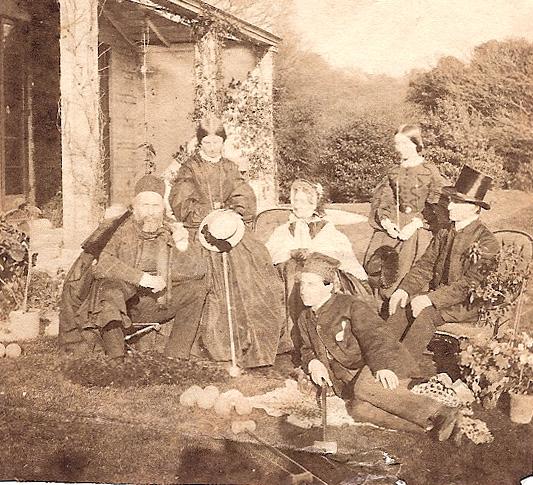 Many
within the extended Jacob family stayed at his home in Queensborough Terrace,
as letters by them demonstrate. He also studied Sanskrit and I
have a letter from him to my great grandfather Colonel George Adolphus Jacob
encouraging him in his study of Sanskrit. In the event Adolphus went on to
become a Sanskrit scholar of some note.
Many
within the extended Jacob family stayed at his home in Queensborough Terrace,
as letters by them demonstrate. He also studied Sanskrit and I
have a letter from him to my great grandfather Colonel George Adolphus Jacob
encouraging him in his study of Sanskrit. In the event Adolphus went on to
become a Sanskrit scholar of some note.
In letters by his cousins, nieces and nephews he is described as a kindly man. His appearance may be considered fierce, but his bark was worse than his bite.
As far as his knighthood is concerned, there was some bad feeling on his part about the fact that he had not been honoured earlier. He felt he should have been given recognition for his services in the Mutiny, although he denied this.
Part
of a letter, unsigned, is illuminating: He demanded recognition for his
services by the addition of his name and the names of officers serving under
him to the "Parliamentary Return of Officers doing good service during
the Mutiny", from which they are ommitted. This was construed by Sir
Bartle Frere to be a claim for honours. a construction most unfair and at
once indignantly repudiated 'Two penny half penny honours given to any body
somebody!" I think in the whole struggle nothing hurt him so much as
this spiteful misinterpretation on Sir Bartle Frere's part. You will observe
how guardedly the Duke refrains from any special mention of 1857-1858. We
are waiting anxiously now to see in what company Uncle G comes out in the
Gazette for if they are unworthy he will be disputed. One KSCI narrowly escaped
a courtmartial for cowardice! 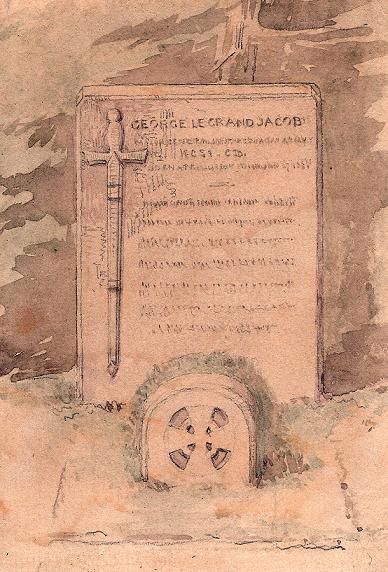
I don't know why Frere should have shown any animosity towards him. Frere was a good personal friend of General John Jacob, George's cousin.
A letter from Eustace Wilberforce Jacob to his father Philip, written on March 24th 1869 states: PS Great news. Hear hear, cries of silence. A letter from the Duke of Argyll saying that the Queen is pleased to confer the dignity of KCSI on General George Le Grand Jacob for his long and eminent services. Uncle George pretends he doesn't care a bit.
Bombay, or Mumbai University, offers a prize to this day for a competitive essay written in English or Marathi, the prize called the 'Sir George Legrand Jacob Prize'. The value of it is Rupees 8000, of which R 800 is given in books, and the balance in cash or books; the essay to be of not less than 5000 words. I don't know when this prize was instituted.
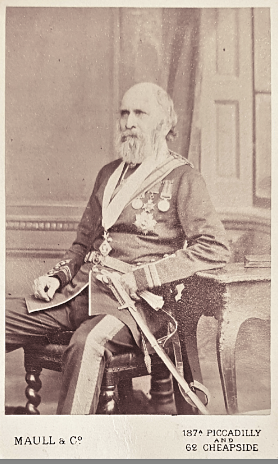
Sources:
.jpg)
